Perpetual Peace: A Philosophical Essay Immanuel Kant - Immanuel Kant was a German philosopher from Königsberg (today Kaliningrad of Russia), researching, lecturing and writing on philosophy and anthropology at the end of the 18th Century Enlightenment.At the time, there were major successes and advances in the sciences (for example, Isaac Newton, Carl Friedrich Gauss, and Robert Boyle) using reason and logic. But this stood in sharp contrast to the scepticism and lack of agreement or progress in empiricist philosophy.Kants magnum opus, the Critique of Pure Reason, aimed to unite reason with experience to move beyond what he took to be failures of traditional philosophy and metaphysics. He hoped to end an age of speculation where objects outside experience were used to support what he saw as futile theories, while opposing the scepticism and idealism of thinkers such as Descartes, Berkeley and Hume.He said that it always remains a scandal of philosophy and universal human reason that the existence of things outside us ... should have to be assumed merely on faith, and that if it occurs to anyone to doubt it, we should be unable to answer him with a satisfactory proof. Kant proposed a Copernican Revolution, saying that 'Up to now it has been assumed that all our cognition must conform to the objects; but ...let us once try whether we do not get farther with the problems of metaphysics by assuming that the objects must conform to our cognition'.Kant published other important works on religion, law, aesthetics, astronomy and history. These included the Critique of Practical Reason (Kritik der praktischen Vernunft, 1788), which deals with ethics, and the Critique of Judgment (Kritik der Urteilskraft, 1790), which looks at aesthetics and teleology. He aimed to resolve disputes between empirical and rationalist approaches. The former asserted that all knowledge comes through experience; the latter maintained that reason and innate ideas were prior. Kant argued that experience is purely subjective without first being processed by pure reason. He also said that using reason without applying it to experience will only lead to theoretical illusions. The free and proper exercise of reason by the individual was both a theme of the Enlightenment, and of Kant's approaches to the various problems of philosophy.His ideas influenced many thinkers in Germany during his lifetime. He settled, and moved philosophy beyond, the debate between the rationalists and empiricists. The philosophers Fichte, Schelling, Hegel and Schopenhauer amended and developed the Kantian system, thus bringing about various forms of German idealism. He is seen as a major figure in the history and development of philosophy. German and European thinking progressed after his time, and his influence still inspires philosophical work today.
Perpetual Peace: A Philosophical Essay
Gerelateerde categorieën

3500 Final Quotes
Marcus Aurelius, Jane Austen, Beaumarchais, Napoleon Bonaparte, Buddha, Winston Churchill, Cicero, Confucius, Nicolas de Chamfort, Charles de Gaulle, Antoine de Saint-Exupéry, Denis Diderot, Fyodor Dostoevsky, Albert Einstein, Ralph Waldo Emerson, Anne Frank, Mahatma Gandhi, Immanuel Kant, Sören Kierkegaard, Martin Luther King, Georg Christoph Lichtenberg, Abraham Lincoln, Montesquieu, Friedrich Nietzsche, Plato, Marcel Proust, Arthur Schopenhauer, William Shakespeare, Socrates, Baruch Spinoza, Henry David Thoreau, Leonardo da Vinci, Voltaire, Oscar Wilde, Laozi
audiobook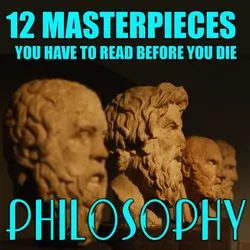
12 Masterpieces You Have to Read Before You Die. Philosophy
Niccolo Machiavelli, Tommaso Campanella, Francis Bacon, Thomas More, John Stuart Mill, Immanuel Kant, Kahlil Gibran, Leo Tolstoy, G.K. Chesterton, Henry David Thoreau
audiobook
An Answer to the Question: What is Enlightenment?
Immanuel Kant
audiobook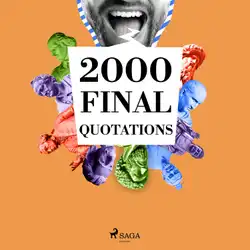
2000 Final Quotations
Marcus Aurelius, Jane Austen, Buddha, Anton Chekhov, Cicero, Emil Cioran, Confucius, Albert Einstein, Anne Frank, Mahatma Gandhi, Johann Wolfgang Goethe, Carl Jung, Immanuel Kant, Friedrich Nietzsche, Marcel Proust, Arthur Schopenhauer, William Shakespeare, Baruch Spinoza, Leonardo da Vinci, Laozi
audiobook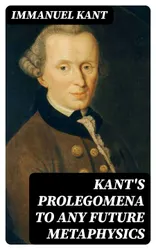
Kant's Prolegomena to Any Future Metaphysics
Immanuel Kant
book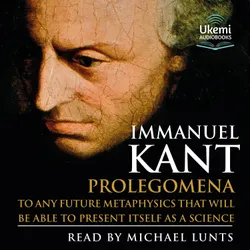
Prolegomena to Any Future Metaphysics that Will Be Able to Present Itself as a Science
Immanuel Kant
audiobook
The Ethics of Immanuel Kant : Metaphysics of Morals - Philosophy of Law & The Doctrine of Virtue + Perpetual Peace + The Critique of Practical Reason: Theory of Moral Reasoning
Immanuel Kant
book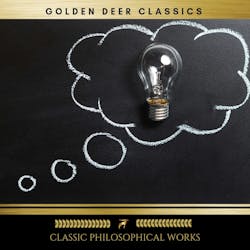
Classic Philosophical Works (Thus Spoke Zarathustra, The Apology of Socrates, Tao Te Ching...)
Plato, Friedrich Nietzsche, Herman Hesse, Leo Tolstoy, Immanuel Kant, Sun Tzu
audiobook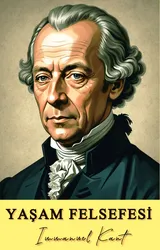
Yaşam Felsefesi
Immanuel Kant
book
La Paz Perpetua :
Immanuel Kant
audiobook
Crítica de la Razón Pura
Immanuel Kant
audiobook
Ikuiseen rauhaan
Immanuel Kant
audiobook
